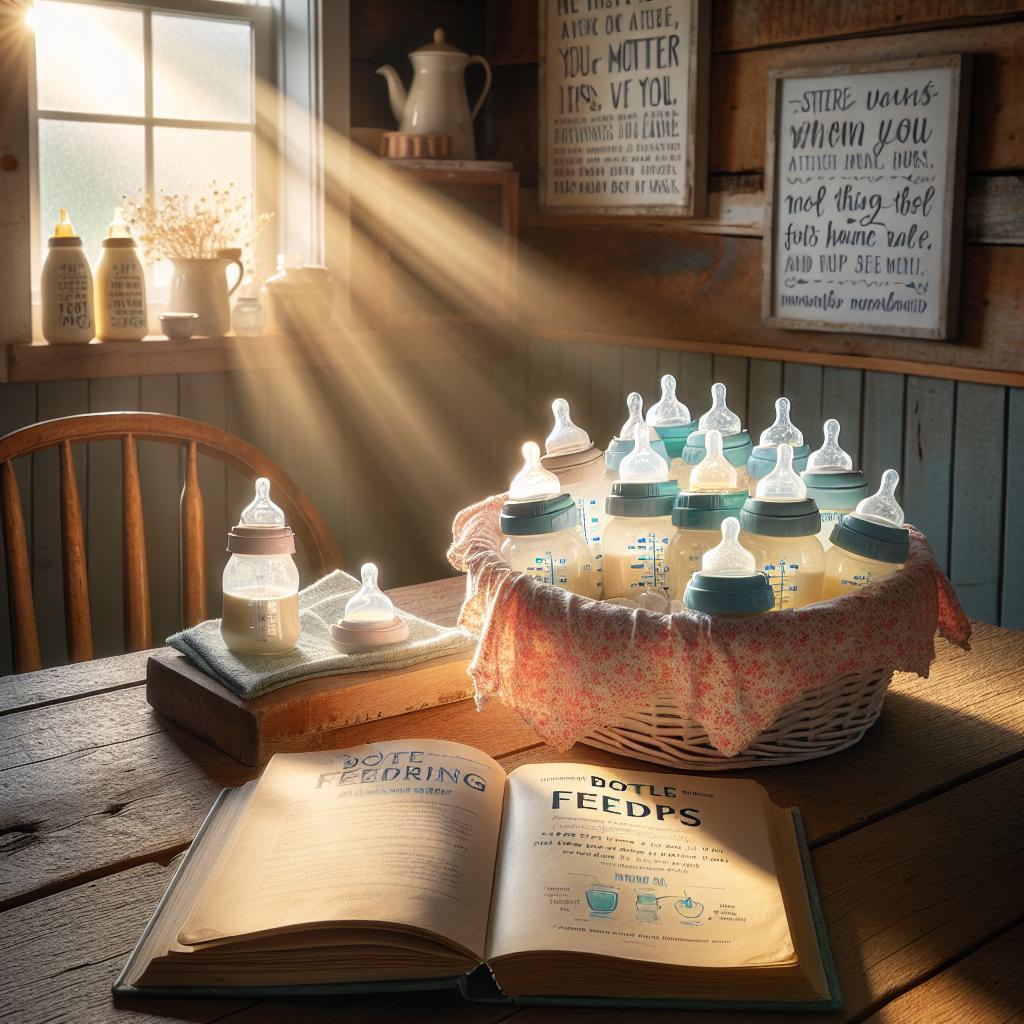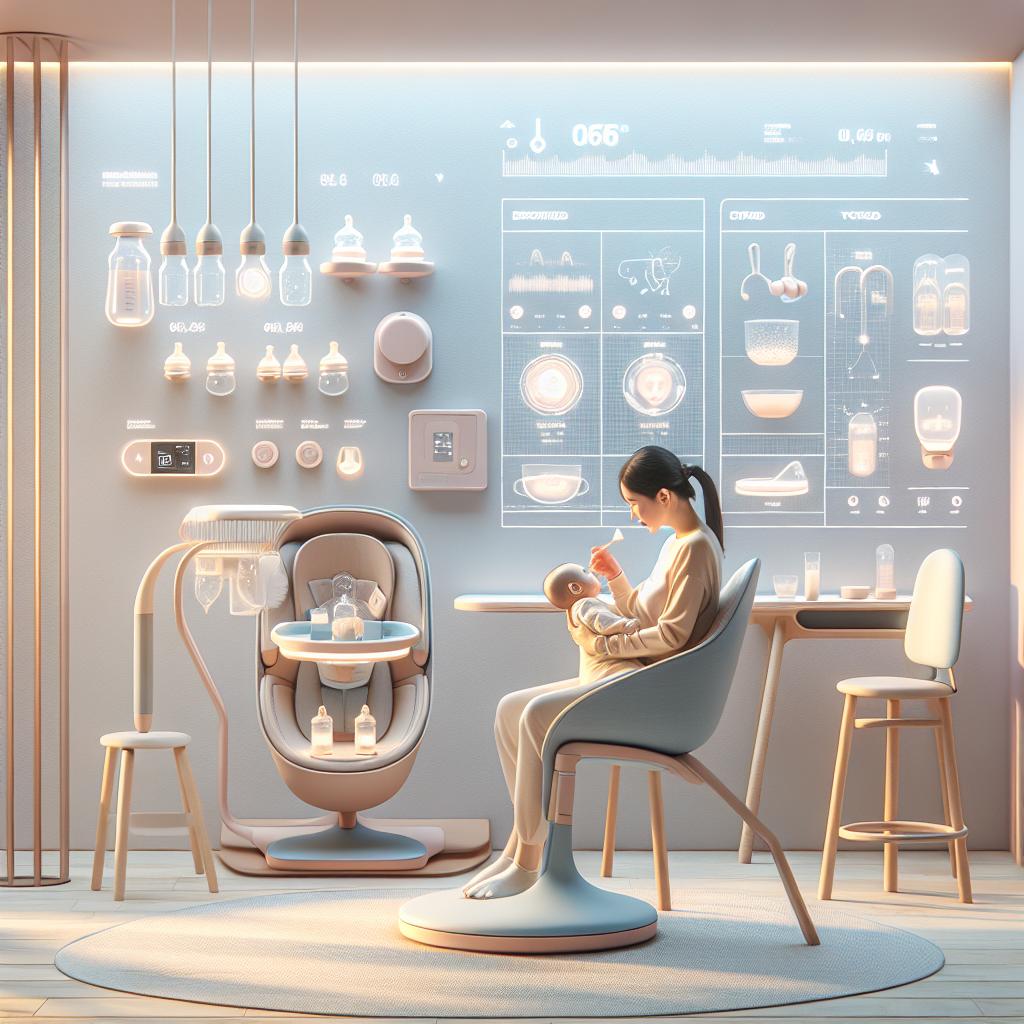The Evolving Role of Critical Baby Bottles in Modern Parenting
The early years of a child’s life are fundamental to their growth and development. This crucial period is when they rely heavily on their feeding tools, most notably, their baby bottles. A bottle isn’t just a feeding tool; it’s a comfort mechanism, a nutritional provider, and an essential item that a mother can’t live without. Today, we delve deeper into why particular types of baby bottles have become so critical in the modern parenting realm and how these must-have baby feeding bottles have become essential feeding tools in every household.
Biomimetic Bottles: The Modern Parent’s Choice
With so many options on the market, selecting the right baby bottle might seem like a daunting task. However, recent trends lean towards the use of biomimetic bottles. These bottles mimic the natural breastfeeding process, making them a favorite among modern parents.
- Biomimetic bottles reproduce the breastfeeding experience, providing comfort and familiarity to the baby.
- They encourage the baby’s natural sucking pattern, promoting healthy oral development.
- The design helps in preventing colic and gas, reducing discomfort for the baby.
Beyond practicality and comfort, these bottles also offer social benefits. They allow other family members to participate in feeding, promoting bonding and creating memories. To understand more, you can refer to this article on the social benefits of biomimetic bottles.
Addressing Special Feeding Needs with Critical Baby Bottles
While biomimetic bottles are fantastic for regular feeding, there could be instances where a baby might need special feeding tools. For example, certain medical conditions like Type 1 Diabetes would require careful consideration when it comes to feeding. Specialized bottles can help deal with such circumstances effectively.
- Anti-Colic Bottles: These bottles have a specialized vent system that reduces the amount of air swallowed during feeding, thus preventing discomfort and colic in babies.
- Nurse Bottles: Ideal for babies having difficulty latching on, nurse bottles mimic the shape of a mother’s breast, making latching easier.
- Bottles with Special Nipples: Certain situations like prematurity or cleft palates necessitate bottles with specialized nipple shapes for easier feeding.
Choosing these bottles goes beyond convenience; it’s about meeting your child’s unique needs and ensuring their comfort during feeding.
Understanding the Importance of the Right Bottle Choice
With the vast selection of baby bottles available, understanding your baby’s individual needs is key to making the right choice. The ideal bottle is one that not only provides functionality but also creates a close bond between the baby and the feeder. Hence, investing time and thought into selecting the right bottle is of utmost importance. To learn more about this, check out this guide on how the perfect bottle fits into modern parenting.
Remember, while everyone has opinions and advice, the ultimate decision lies with you – the parent who knows their child best. Trust your judgment and make an informed choice to meet your child’s feeding needs effectively.
Selecting Bottle Material: Another Critical Consideration
After deciding on the type of bottle, another important aspect that needs consideration is the material of the bottle. The materials commonly used include plastic, glass, and stainless steel.
- Plastic Bottles: They are light, unbreakable, and convenient. However, one must ensure they are BPA-free to avoid any potential health risks.
- Glass Bottles: They are eco-friendly and do not contain any harmful chemicals. However, they are relatively heavy and can break.
- Stainless Steel Bottles: These are durable, long-lasting, and do not leach chemicals. On the downside, they are usually costlier than plastic or glass.
Each material has its advantages and disadvantages, and the decision should be made based on practicality, safety, and personal preference.
Ensuring Bottle Safety and Hygiene
Once you have selected the right bottle, maintenance is crucial to ensure your baby’s health and safety.
- Clean the bottles and nipples thoroughly after each use to remove any leftover milk and prevent bacterial growth. Specific bottle brushes are available to aid in effective cleaning.
- Regularly sterilize the bottles, especially in the early months when the baby’s immunity is still developing.
- Replace the bottles and the nipples regularly. Cracks or discolorations in the bottle or nipple may harbor bacteria and harm your baby.
Though these tasks may seem tedious, they are imperative for the well-being of your child.
Looking Beyond Bottles: The Importance of Balanced Nutrition
While bottles are an important tool in feeding your baby, it’s essential to remember that they are just that—a tool. The nutrition that your child receives is of utmost importance. Whether you’re offering breastmilk, formula, or introducing solids, consult with a pediatric dietitian to ensure your child is getting a balanced diet for their growth and development.
In the journey of parenthood, baby bottles play an unrivaled and evolving role. They do not merely feed your infant but ensure comfort, promote health, and facilitate bonding. Hence, making an informed choice of the right bottle type and material, and maintaining its hygiene is crucial. Remember, each baby is unique and so are their needs. Trust your instinct as a parent and do your research. And always remember, the love and care you put into feeding your child far outweigh any bottle choice you could make.






